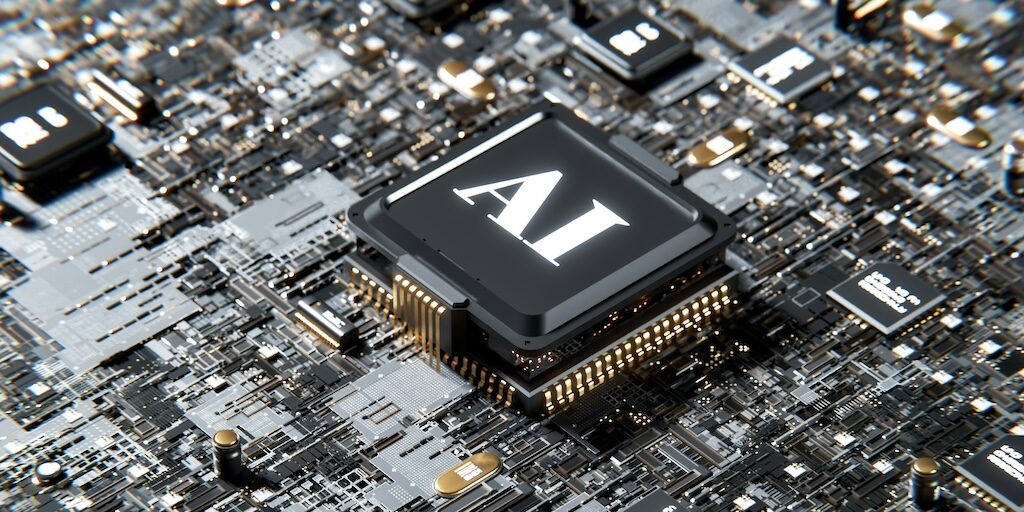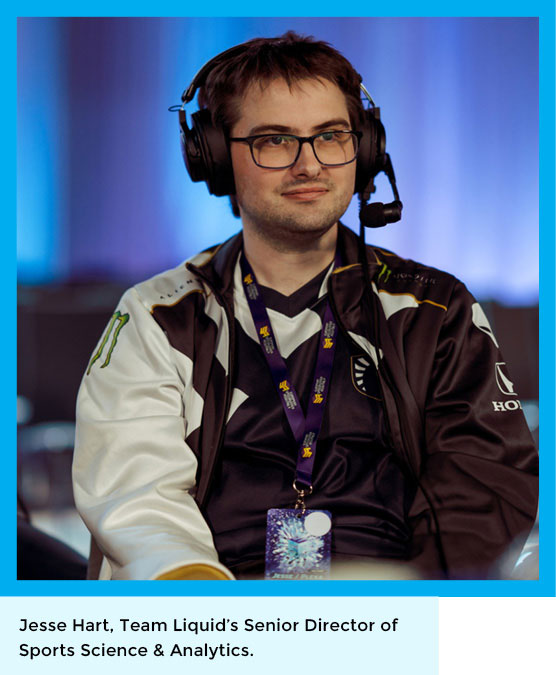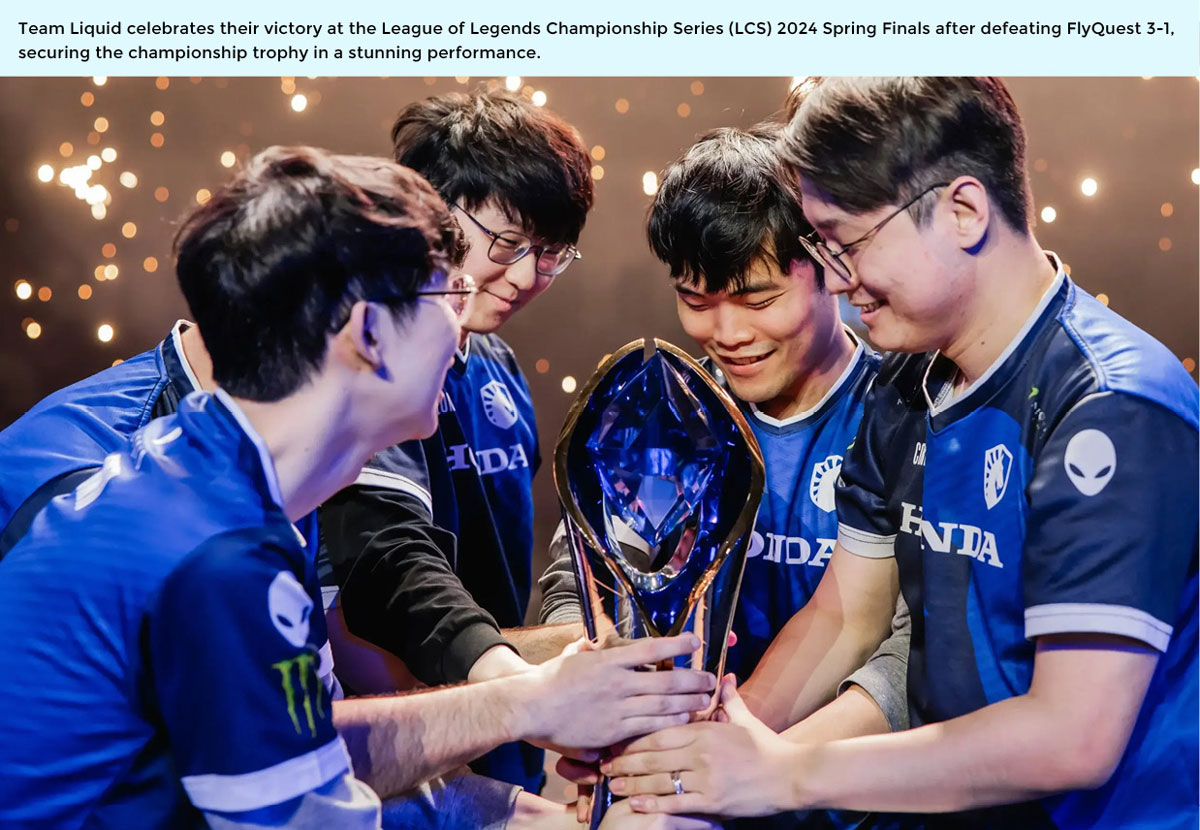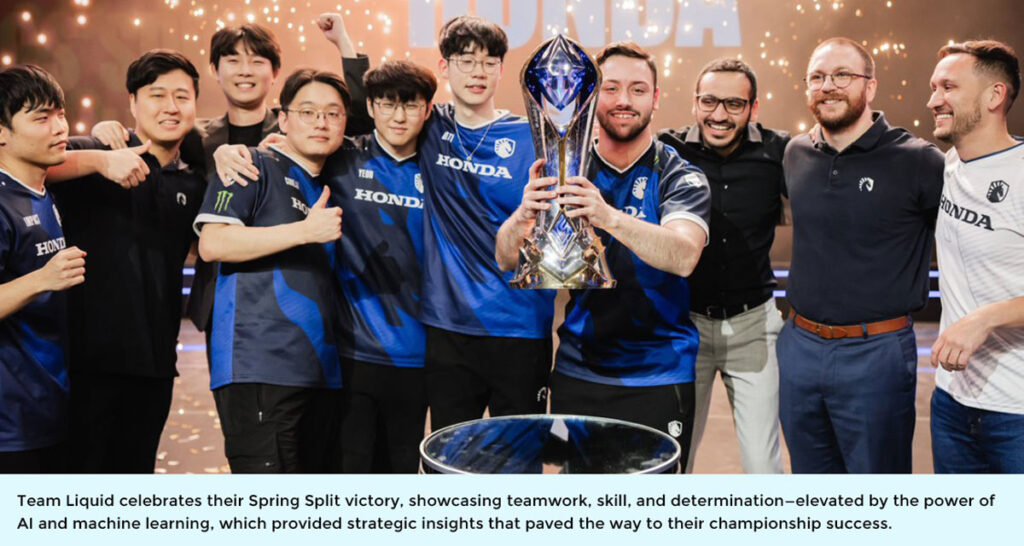
December 2, 2024
The AI Playbook
How Machine Learning is Rewriting the Rules of Esports
Inside the data-driven revolution transforming professional gaming, where AI is turning split-second decisions into strategic gold—and creating a technological arms race that could reshape the industry’s future.
By Greg Smith
December 2, 2024

 Jesse Hart has 96 hours to crack the code. As Team Liquid’s Senior Director of Sports Science & Analytics, he’s part of the invisible army working between matches to transform mountains of data into championship strategies. In the old days, analyzing a single tactical pattern could eat up 30 precious minutes. Now, artificial intelligence does it in three.
Jesse Hart has 96 hours to crack the code. As Team Liquid’s Senior Director of Sports Science & Analytics, he’s part of the invisible army working between matches to transform mountains of data into championship strategies. In the old days, analyzing a single tactical pattern could eat up 30 precious minutes. Now, artificial intelligence does it in three.
“AI is just another tool in the suite of tools we have available to us,” Hart says, sitting at the intersection of professional gaming’s most significant technological revolution. But what a tool it is. Team Liquid, in partnership with SAP, is processing over 550 billion data points to decode everything from player tendencies to team dynamics. They’re not alone. Across the $1.8 billion esports industry, organizations are racing to harness AI and machine learning, creating a technological arms race that’s transforming how teams compete, train, and win.
The Draft Whisperer
Consider the draft phase in League of Legends, where teams have mere seconds to make decisions that can determine the fate of million-dollar matches. With 445 quadrillion possible team selections and just 30 seconds per pick, the stakes are enormous. Hart knows this firsthand - in 2022, Team Liquid suffered a devastating 0-3 loss to Evil Geniuses in the Spring Playoffs, missing their World Championships shot due to surprise counter-picks they hadn’t anticipated. “It was a dark day for us, but it’s a dark day that’s become a lesson,” Hart says. “We have to be aware and prepared for these things.”
That loss spurred Team Liquid to develop their AI-powered draft bot with SAP, built on the company’s Business Technology Platform. The system doesn’t just analyze current meta trends—it uncovers hidden counter-strategies by diving deep into historical data. “Everyone knows what the meta is,” Hart explains, “but there’s also a bunch of other stuff that gets harder to factor in.” Like a chess engine finding brilliant moves in forgotten games, the AI can surface critical counter-picks that haven’t seen play in months. “A classic example is when Azir is in the meta, Veigar is a counterpick. But what players know how to play Veigar today? We won’t have any data on that because Azir’s been on the shelf for most of the season.”
The scale of data analysis in esports is staggering: 50,000 data points from each match, with more than 10 million games available.
Beyond the Draft: The AI Analysis Engine
The scale of data analysis in esports is staggering: 50,000 data points from each match, with more than 10 million games available. Team Liquid stores 1.6 TB of game data in SAP’s HANA cloud to fuel their AI systems. Their model employs a sophisticated machine-learning algorithm to uncover the key factors that define competitive success. The system analyzes everything teams do in-game to identify their strategic priorities. Do they value first tower? Drake control? Early fights?
This becomes crucial during international tournaments like Worlds, where teams often have less than 24 hours to prepare for unfamiliar opponents. “You really need something powerful that can quickly determine what their tendencies are,” Hart explains. For instance, the system might identify that an LPL team’s aggressive early-game fighting style makes first tower a critical objective—insight that shapes strategic preparation.
The push toward AI-driven analysis is industry-wide. “AI provides our coaches and analysts with a third eye to identify patterns and trends,” Evil Geniuses’ Chief Innovation Officer Chris DeAppolonio told Esports Insider in November 2023, discussing their partnership with Hewlett Packard Enterprise. “This helps us improve performance, strategize to win, and uncover talent from across the globe.”

The Training Revolution
Player development is experiencing its own AI transformation. Team Liquid’s “readiness model” correlates solo queue performance with pro play benchmarks, helping coaches make data-driven decisions about champion mastery. With a pool of 169 champions, each with unique abilities and synergies, mastering even a subset requires intensive analysis. “We can kind of gauge the progress a player is making on a particular champion,” Hart explains. “How much more work do we need to do before we think it’s stage ready?”
Even team communications are getting the AI treatment. Natural language processing automatically transcribes in-game comms, revealing patterns that would be impossible to spot in the chaos of live play. Hart recalls how this led to a crucial discovery: “We identified that one of our players, if you successfully ganked him, would kind of shut down completely. He’d just not talk for the next ten minutes as he’s trying to get his lane back together.” This insight enabled targeted coaching interventions that might have been missed in traditional review sessions.
The impact is measurable. Team Liquid’s AI-enhanced training and analysis recently contributed to their victory in the League of Legends Championship Series (LCS) 2024 Spring tournament, where they defeated FlyQuest 3-1.
The Digital Divide
However, this technological revolution isn’t democratically distributed. Team Liquid’s systems run on SAP’s HANA cloud, while Evil Geniuses leverages HPE’s enterprise solutions—infrastructure that smaller organizations simply can’t access. The scale alone is daunting: analyzing millions of hours of game data requires significant computing power. League of Legends data volume alone exceeds 2.1 million hours of gameplay.
Companies like Shikenso Analytics are using AI to track brand exposure during streams, providing precise metrics for sponsorship valuations that were previously impossible to calculate. The stakes are higher than many realize—the 2023 League of Legends World Championship matched Super Bowl viewership numbers, underscoring the massive scale of modern esports.
Meanwhile, researchers at the University of Texas are developing AI systems to detect cheating by analyzing data packet patterns—a crucial application as prize pools and stakes continue to rise. “There’s many applications where we leverage the full potential of existing SAP products and throw them into the tool and do cool stuff with it,” Hart notes, highlighting how enterprise-grade AI is being adapted for esports.

The Future of Competition
Looking ahead to 2025, Team Liquid is preparing to roll out what could be their most transformative tool yet. Called “Joule,” this natural language AI system will allow coaches and players to query their massive database using plain English. “Coaches and players know exactly what questions they need answers to,” Hart explains. “Sometimes on the analytics side, we have to guess. This puts the power directly in their hands.”
The implications extend far beyond individual teams. While top organizations like Team Liquid build enterprise-grade AI solutions, the technology is being adapted across all levels of competitive gaming. Companies like DeepLol in Korea are developing more accessible AI-powered tools focused on improving individual player performance, democratizing some of the analytical capabilities previously reserved for professional teams.
The reach of AI in esports continues to expand in unexpected ways. Scientists at the University of Texas are using artificial intelligence to detect cheating through sophisticated data packet analysis, while companies like Shikenso Analytics employ AI to transform esports broadcasts into detailed sponsorship metrics. Even educational institutions are finding innovative applications - American Public University System’s (APUS) esports club, as reported by Esports Insider in late 2023, uses AI for creating graphics and media content, demonstrating how the technology is being adapted at various levels of the ecosystem.
This multi-tiered adoption of AI technology is creating both opportunities and challenges for the industry. While enterprise solutions like Team Liquid’s partnership with SAP represent the cutting edge of what’s possible, more accessible tools are emerging to serve amateur teams, educational programs, and individual players. The result is a technological ecosystem that mirrors the competitive one - with clear tiers of capability, but also clear paths for advancement.
The scale of data analysis in esports is staggering: 50,000 data points from each match, with more than 10 million games available.
The Human Element
Despite the technological firepower, organizations are learning that AI isn’t a magic bullet. Team Liquid carefully filters AI insights through coaches and analysts, avoiding information overload for players. “If you’re giving players not useful information, they will switch off from it,” Hart notes. “The strength of generative AI is its ability to make non-experts look like experts. We can round out the skill sets of all our coaching staff using generative AI to level up the team.”
This balance—between technological capability and practical application—will likely determine which organizations succeed in esports’ AI-driven future. “The genie is out of the bottle,” Hart concludes. “We’re not going back to a world without it.”
The challenge now isn’t whether to adopt AI, but how to implement it effectively while maintaining competitive balance in an industry where technology increasingly separates the winners from the field. As the arms race accelerates, one thing is certain: the future of esports will be written in code, shaped by algorithms, and decided by organizations that best blend artificial intelligence with human expertise.
For business leaders in the space, the message is clear: AI isn’t just changing how matches are won—it’s transforming the entire competitive landscape. Those who fail to adapt risk being left behind in an industry where technological advantage is becoming as important as player skill. The question isn’t if AI will reshape esports, but who will lead the revolution.
Categorized in: EsportsNext Magazine



